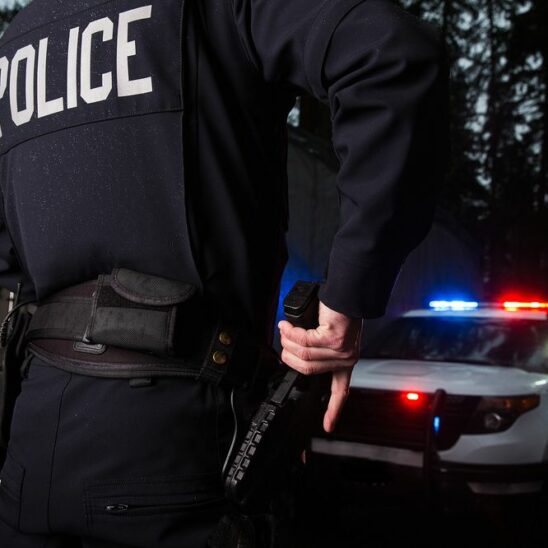When citizens are injured by unwarranted police shootings, police officers are held accountable for damages through civil lawsuits and payouts to injury victims.
Police Shootings in the Spotlight
In the last decade, the number of ordinary citizens involved in police shootings has put a national spotlight on police misconduct and police reform. After Rodney King’s 1991 beating by the Los Angeles Police Department (LAPD) was captured on a home camcorder video, changes were made to protect the public from police brutality. Police officers were issued vehicle dash cameras, body-worn cameras, and police bias training courses. Unfortunately, over the years, these changes have fallen short of holding police officers accountable for actions of misconduct and brutality.
Within law enforcement, the standard processes for holding police officers accountable for misconduct include issuing civil payouts to victims and replacing terminated officers. However, personal injury attorneys handling civil lawsuits for injury victims witness many charged officers who remain on the job.
When an incident occurs involving a police shooting, police officers are allowed time to consult with the Fraternal Order of Police and a defense lawyer before officials address the public. Complaints of misconduct usually go to internal affairs, then to a trial board where a group of police officers serve as judge and jury to decide if the accused officers are guilty of misconduct.
Typically, a police officer must commit an extremely egregious act to be fired. In most cases, charged officers are allowed to remain on the force, then transferred to desk duty, given paid or unpaid leave, or fined at a prorated amount in future paychecks. From 2013 to 2020, 98.3% of officers involved in civilian shootings were not charged with a crime.
It’s estimated that about 1,000 innocent civilians are killed every year by unwarranted police shootings. Crime rates in different cities do not determine police misconduct rates. Most cases of unwarranted and unlawful shootings begin with traffic stops, domestic disturbances, non-violent offenses, and mental health checks where there is no evidence of a crime.
Evidence suggests that encouraging police officers to talk and listen to citizens before pulling out a firearm is an effective form of intervention. Indiana personal injury attorneys are in favor of training to implement a model for police reform that focuses on transparency, neutrality, and respect within the community.
Filing Civil Lawsuits for Police Misconduct
Police officers can be held accountable for actions of misconduct and brutality through civil lawsuits, including state causes of action and federal lawsuits. When a citizen is injured by police misconduct, a personal injury attorney can file a civil lawsuit against the officer for damages. When the lawsuit is successful, the injury victim may be awarded compensation for:
- Medical expenses
- Lost income
- Future lost income
- Rehabilitation and therapy expenses
- Disability payments
- Pain and suffering
If the court rules the act of misconduct as egregious, the injury victim may also be awarded punitive damages to punish the police officer for his/her actions. Awards for punitive damages are often substantial to set a precedent for future offenders who may commit a similar offense.
Civil lawsuits are a primary way to hold police departments and police officers accountable for their actions. Although the federal government investigates claims against police departments every year, private litigants file more than 15,000 cases in federal district courts each year to enforce civil rights. Civil lawsuits by injured civilians allow ordinary citizens the right to protect their civil rights under the U.S. Constitution while collecting compensation for unlawful police actions.
Wrongful Death Cases
When a wrongful police shooting results in the death of a civilian, family members of the deceased have a right to file a wrongful death lawsuit with a personal injury attorney on the deceased’s behalf.
Wrongful death claims are brought against a defendant who has caused someone’s death, either through negligence or as a result of some intentional action. In wrongful death cases, damages may be awarded for the following:
- Funeral and burial expenses
- Loss of the deceased’s expected income
- Loss of inheritance as a result of the death
- Loss of love and companionship
- Loss of consortium
- Value of services the deceased would have provided
Civil lawsuits for personal injury cases and wrongful death cases must be filed within the statute of limitations. In Indiana, the statute of limitations is two years from the date of injury and/or death. The deadline for filing may be extended under certain circumstances: 1) the injured party is a minor; 2) the injured party is mentally incapacitated; or 3) the defendant left the state following the event.
When intentional acts of violence such as police shootings result in injury or death, civil lawsuits and criminal lawsuits may be filed simultaneously. While a civil lawsuit results in monetary awards for the injury victim, a criminal lawsuit may result in jail time for the offender.

